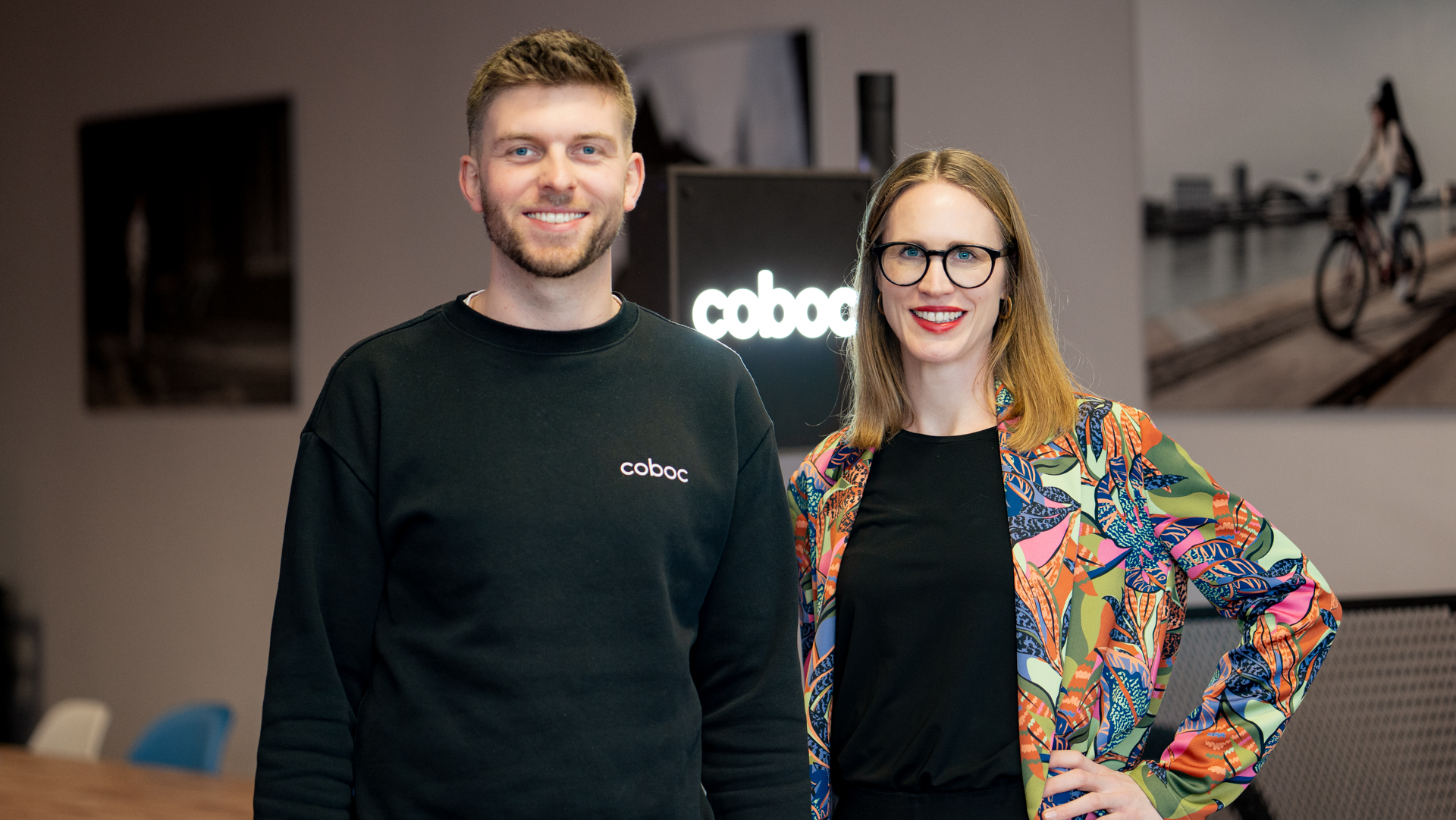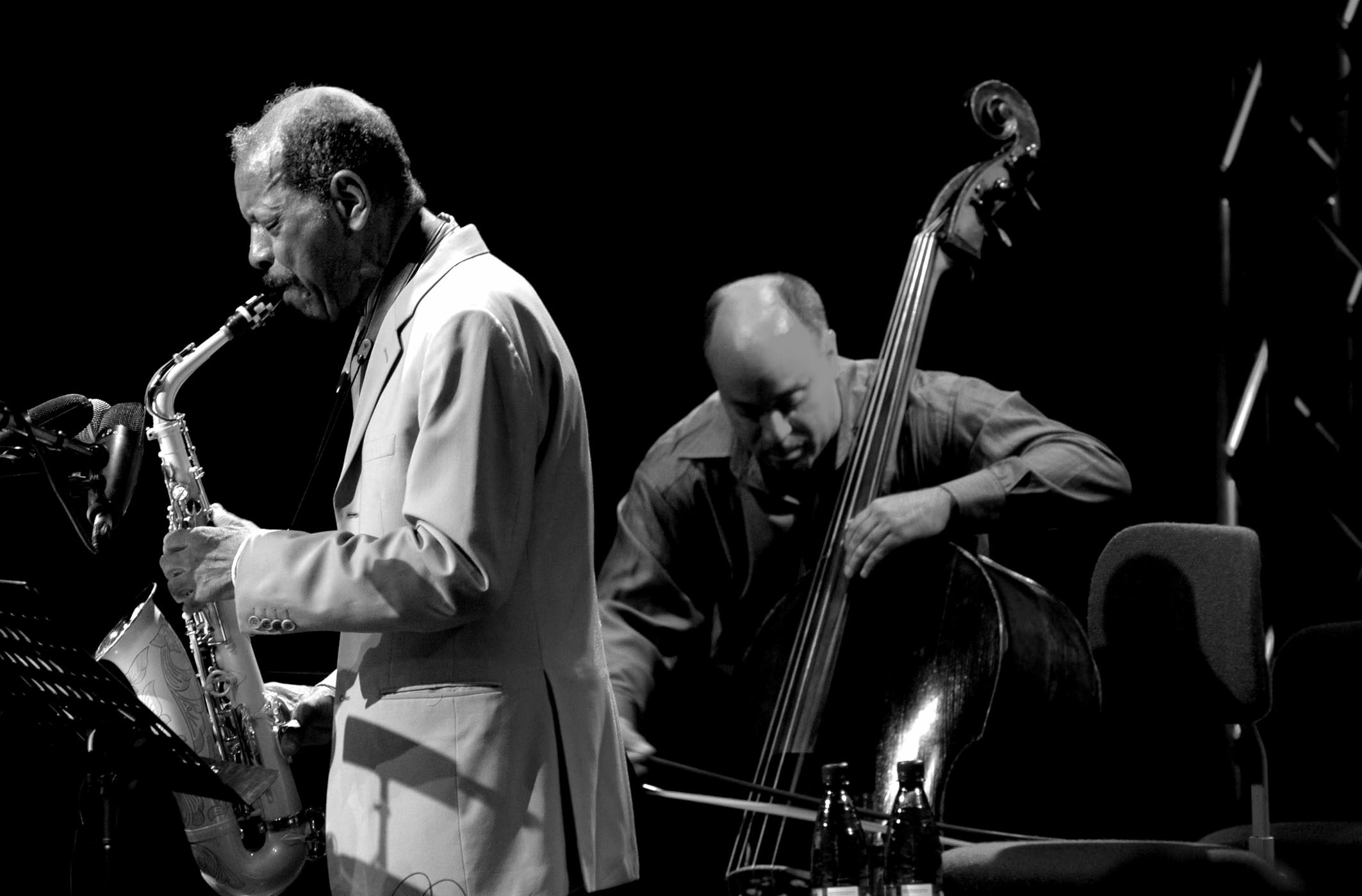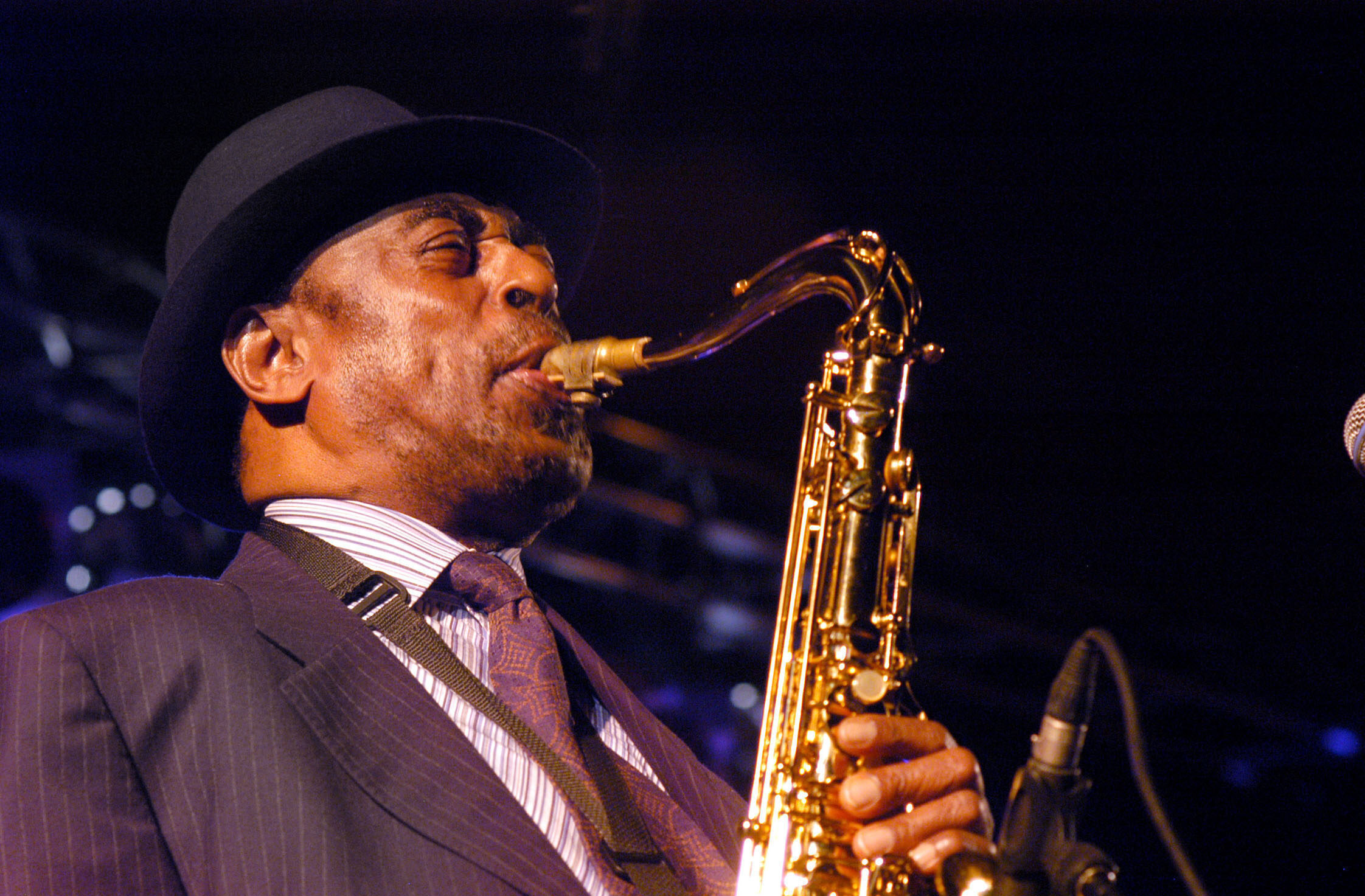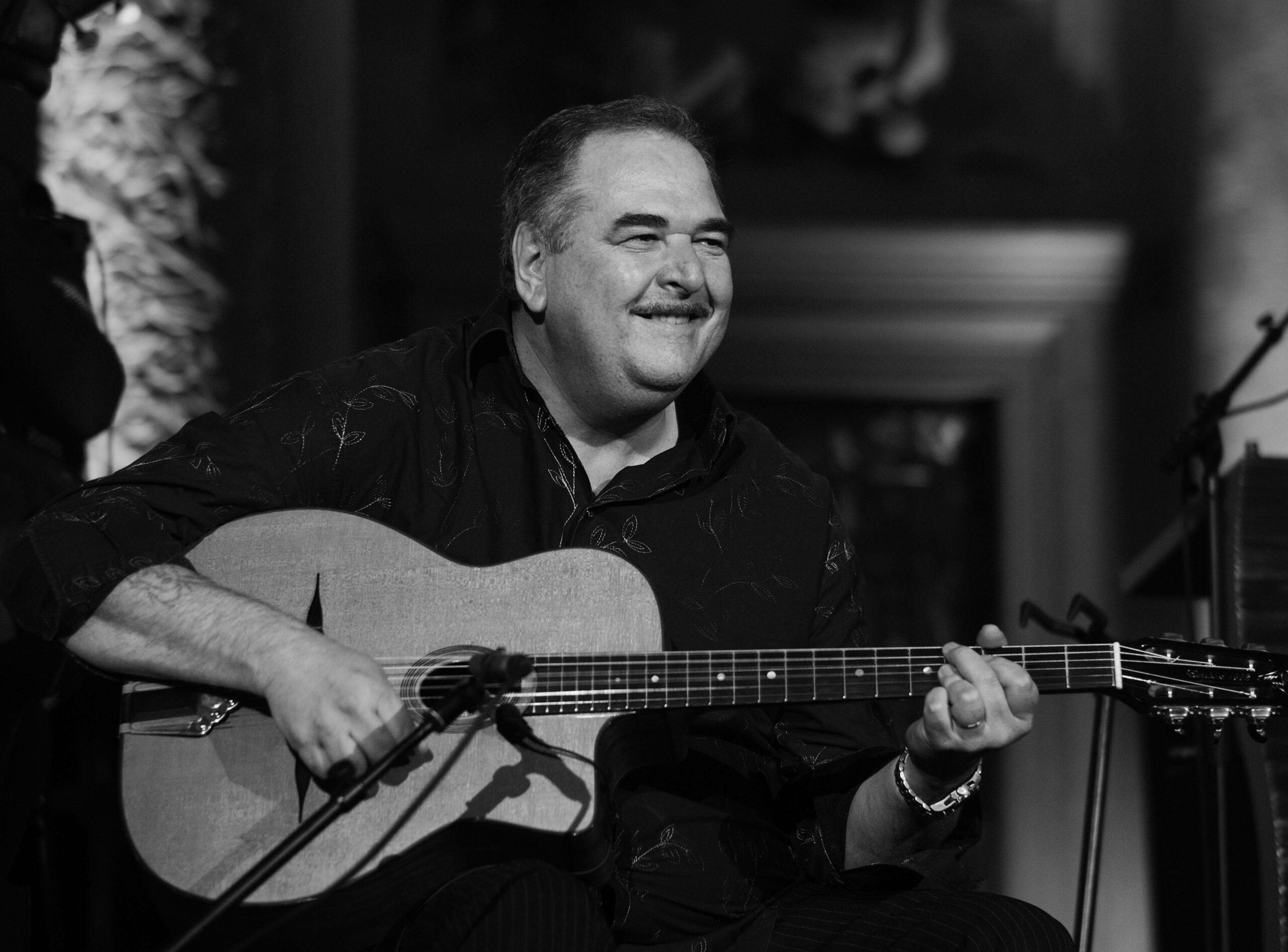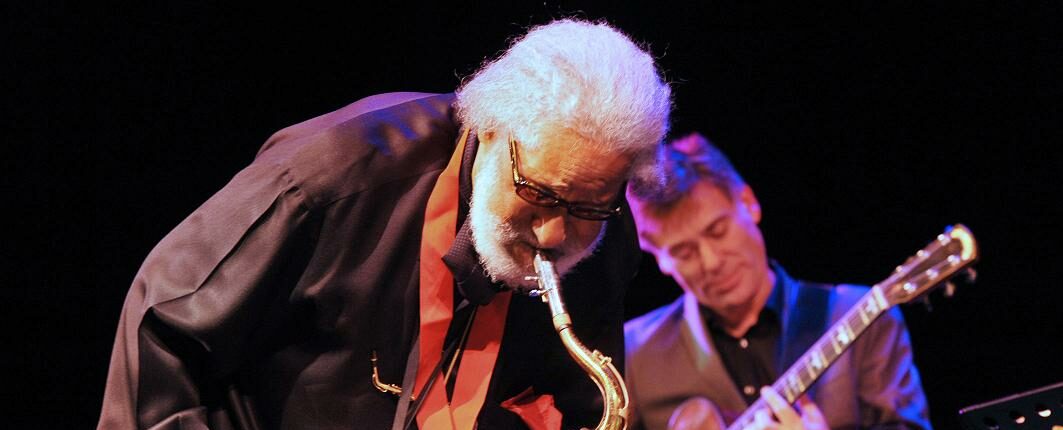Carla Bley is one of the most important female composers in jazz history. On the occasion of a trio concert at Enjoy Jazz 2013, the opportunity arose for a conversation. A very special conversation, as was soon to become apparent. Carla Bley brought her partner, bassist Steve Swallow, with her. In addition to music, the two also share a unique form of humor and esprit. Swallow actually only wanted to listen, but ... (Interview from 2013)
The influence that you exert with your music, especially on young leaders of larger ensembles, is enormous. Nevertheless, it is well known that it was and is not always easy for you to break through with your music. Would you say that you have always received the respect that you and your work deserve?
CB: In fact, I've always been given more respect than I deserve. I can hardly believe that this music has been with me all my life now, that I'm allowed to do this. No one has ever dissed me for it. Or I haven't noticed. Everyone has always been very accommodating. And what's most important to me is that the musicians I've worked with have always loved what we've done. I really haven't had any bad experiences. With the exception of the very early days, perhaps. The unfriendliness that hit me there in the truest sense of the The unfriendliness that hit me there, in the truest sense of the word, was physically palpable in a way that was sometimes quite painful. At that time, people threw objects at me on stage.
Really?
CB: But yes. I can even still tell you which ones: There were apples, peaches, beer bottles flying, lots of bottles, even full ones. What I found amazing is that the musicians didn't jump out on me about it. They put up with it. Only my drummer I once had to persuade him with the tongues of angels to come back on stage, because he, of all people, got the tomatoes every time, for whatever reason.
Steve Swallow: I'm guessing he didn't play very well that night. (Both laugh.) Seriously, all that didn't last very long, as far as I know. That's right, it was really only at the very beginning. At that time, I sometimes heard such uplifting sayings as "Go home and do the dishes," for example in Italy, as I still remember well.
And back home in America?
I didn't actually work in America, or hardly at all. Very rarely there was a small tour.
SW: Yes, and when it was, it was always pretty unpleasant. There was and is basically no real substantial audience for this kind of jazz in the States.
Have you never tried to work exclusively as a composer?
CB: That would have been my dream. And I did that, actually, for many years.
SW: Actually, I think that's what you still are: a full-time composer. That's how I would describe you, anyway. You spend most of the of the year writing music, plus performing maybe a month or two a year. And why do you perform? Because you want to play what you write.
CB: Yes, that's right. That's the only reason. Because I'm not really a stage musician at all.
SW: I watch that every day. She never gets up and drinks her coffee at the kitchen table. She always takes it to the piano. She has a tremendous concentration and seriousness in her work. And she does it seven days a week. Simply in order to be able to write as much, or better: to write music as intensively as at all possible. But materially, the reward for writing is not worth this effort. Unfortunately.
What exactly appeals to you about interrupting your compositional work, which is also a kind of destiny, and performing your music yourself again and again?
CB: I have to go back a little bit. I just couldn't make money composing for a long time, but I could make money playing. I wrote most of my music for free. I think I'd like to say now that so I'm forced to keep going back to the stage. But the truth is, when I've played a good concert, it makes me extremely happy. When everything works out, when I can implement exactly what I have in me, when all the notes come out right and in the right place, or at least only a very few are wrong and maybe no one even hears them, or at least I can imagine that, then that is a truly exhausting feeling of happiness afterwards. Simply great. In writing, it sometimes takes three years until you feel something like happiness. Usually not even until the piece is eventually performed. In other words, three years of waiting for an hour of happiness. As a musician, or let's say: as a good musician, on the other hand, you have a chance to feel this happiness every day.
SW: Perhaps it also has something to do with the fact that you need a very long time to complete a composition. That makes it hard to feel the moment of deepest satisfaction when the work is done. Maybe the process was just too exhausting for that.
CB: He knows me better than I know myself.
What musicians in particular admire about you is the freedom from clichés in your music, especially with regard to harmonic resolutions - and of course your very idiosyncratic sense of humor.
CB: Why there are probably no clichés in my music is very easy to answer: I don't know any. And believe me: If I knew them, I would probably work them into my pieces.
But the world, including the world of music, is full of clichés, isn't it?
CB: Yes, maybe, but when I'm confronted with them, I somehow can't deal with it. I don't relate to them at all. I don't know how they work. It's like a language that I don't understand and I can't speak. I'd like to learn them, though. I really would.
SW: But please only after the tour.
CB: Because of me. And about humor: I have made the experience that most musicians are very funny and humorous. At dinner, in the dressing room or on the bus, people are constantly pulling each other's leg. There's an incredible amount of laughter. But as soon as they enter a stage, they become solemn and look more serious than their own suit. I've never understood that. I wouldn't have that kind of self-control at all. If I feel something is funny, then it's just as funny to me on stage as it is on the band bus. And I want to be able to express and share that feeling then. That's human. It's an important part of extra-musical communication and subsequently also of musical communication.
SW: Yes, that's nice. But unfortunately there is a tendency towards a kind of new musical correctness. That's a pity, because in the long run it will lead to completely different expectations, among musicians as well as between musicians and audience. And that's what's special about Carla's music. It allows fun or humor, analogous to its importance in life, to become an integral part of the performance, especially when it arises spontaneously from the music itself. As a result, we are all somehow more truthful on stage and perceive ourselves that way. This creates an additional level of openness - and many very personal and relaxing moments.
The new "Trios" album is a kind of retrospective, but at the same time a new, sonically as well as aesthetically once again condensed sound..
CB: It wasn't planned that way. That's really the merit of Manfred Eicher as producer, who made that possible, who led us to this point. He picked out the pieces and had the appropriate sonic idea behind them even before me or before us. It was just nice to finally hand over responsibility. I've spent my whole musical life determining how something should be done or how it should sound. And this time Manfred took over that role. That's exactly the experience I wanted. He chose the pieces, he determined the order, he determined the studio and also the artwork, right down to the photo, which shows only me, although I personally would have preferred a photo of the trio. But anyway: it was great. I didn't have to worry about anything. We played, got paid and went home. A dream.
SW: Carla never had a producer before. It's hard to believe. She was forced from the beginning to rely on her own judgment, to make her own decisions, to handle everything completely herself, up to and including record sales. And now, for the first time, there was someone telling her, "This take is not good enough, this or that piece doesn't fit into the album repertoire." That was a wonderful experience: pure, carefree concentration. Manfred, with his great musical understanding, was more than helpful here.
You give your musicians enormous freedom, reminiscent of Duke Ellington in some respects, so that despite all the compositional mastery, the musicians are always at the center of the music ...
CB: Oh, thank you. I like that compliment.
Speaking of which, how do you yourself actually see your connection to Ellington?
CB: Frankly, I don't see that big of a connection. I just like to write for certain musicians. I can hear them playing in my head on every single line I write. I like to work with the same people over and over again because I know and like their sound. When I imagine someone else playing it, it makes me uncomfortable. Because I don't know how it will sound. I just can't hear it in this case until I hear it. And another thing is important: Once I have decided on a musician, I would never criticize him. Fire, yes, but never criticize!
SW: (bursts out laughing) No, no, don't believe a word she says, you've never fired anyone.
One last question: Am I deceiving myself, or are there two instruments, besides piano or organ, that are particularly important in your music ....
CB:... trombone and bass! Right. I've only worked with two bass players in all these decades: with Steve and with Charlie Haden. I just need that very specific sound in my back. I can't imagine working with anyone else.
SW: Oh my god, I'm privileged.
CB: Typical. I praise him and he makes fun of it. As punishment, he usually has only one note to play in the piece I just finished.
SW: Yes, but this is perfect for me. Especially because that note is one of the notes that I do best. I'm happy about that. That's exactly how it has to be. In the end, everybody is happy.
Interview: Volker Doberstein
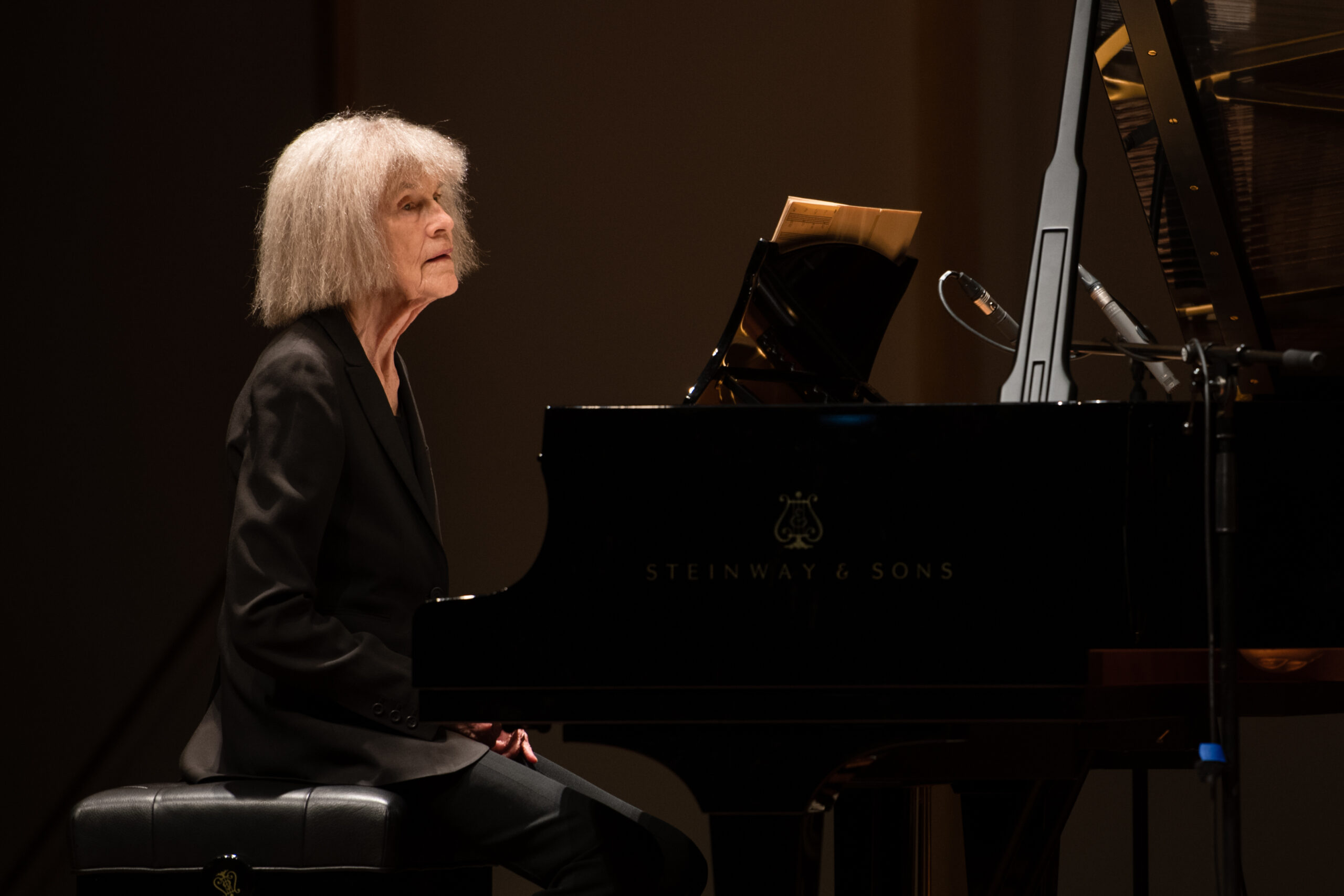
Date: June 26, 2023

